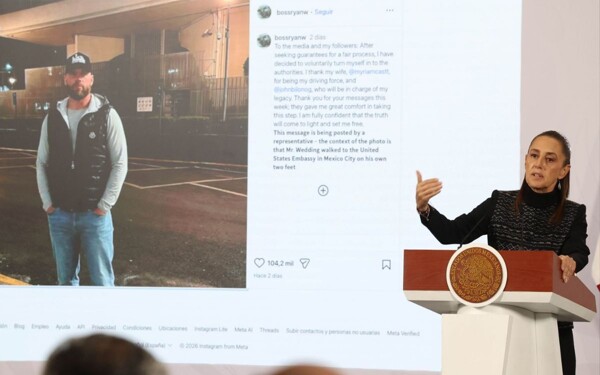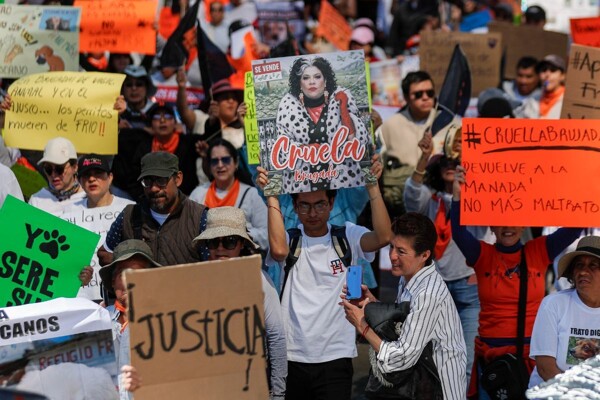Federico Anaya Gallardo, candidate for the Supreme Court of Justice of the Nation (SCJN), will occupy position number 36 on the ballot for the upcoming judicial elections on June 1.
A lawyer by profession, Anaya is a graduate in Law from the National Autonomous University of Mexico (UNAM) and has a Ph.D. in Political Science from Georgetown University, Washington D.C. His career in public office dates back to the government of Andrés Manuel López Obrador in Mexico City, where he served as Head of Government. During this period, he held the position of legal director of the Ministry of Culture of the Government.
After completing López Obrador's government, Anaya worked as technical secretary of the San Luis Potosí Human Rights Commission Council. In 2020, he returned to Mexico City and began collaborating with Martí Batres, first in the Ministry of Indigenous Peoples and Neighborhoods of the Government, then at Channel 21 and later in the Senate of the Republic.
Anaya Gallardo participated in projects related to the Covid-19 pandemic and was an advisor in the Ministry of Indigenous Peoples and Neighborhoods, in the office of Senator Martí Batres, and at Channel 21. During his time in the Senate, he was the technical secretary of the Constitutional Points Commission.
After a change of government, Anaya joined the Institute of Security and Social Services for State Workers (ISSSTE) as a lawyer in the legal area. Despite his career in various institutions, he decided to run as a candidate for minister of the SCJN and has met all the eligibility and suitability requirements. In addition, he had the fortune of being drawn by both powers, Executive and Legislative.
Anaya Gallardo has been a promoter and defender of the constitutional reform approved last year, which motivated him to enroll in the selection processes for the SCJN. Among his activities, he stands out for his work as a trainer at the National Institute of Political Training of Morena and his role as an advisor to the Head of Government of Mexico City, Martí Batres, where he remained assigned to the Ministry of Indigenous Peoples and Neighborhoods.













